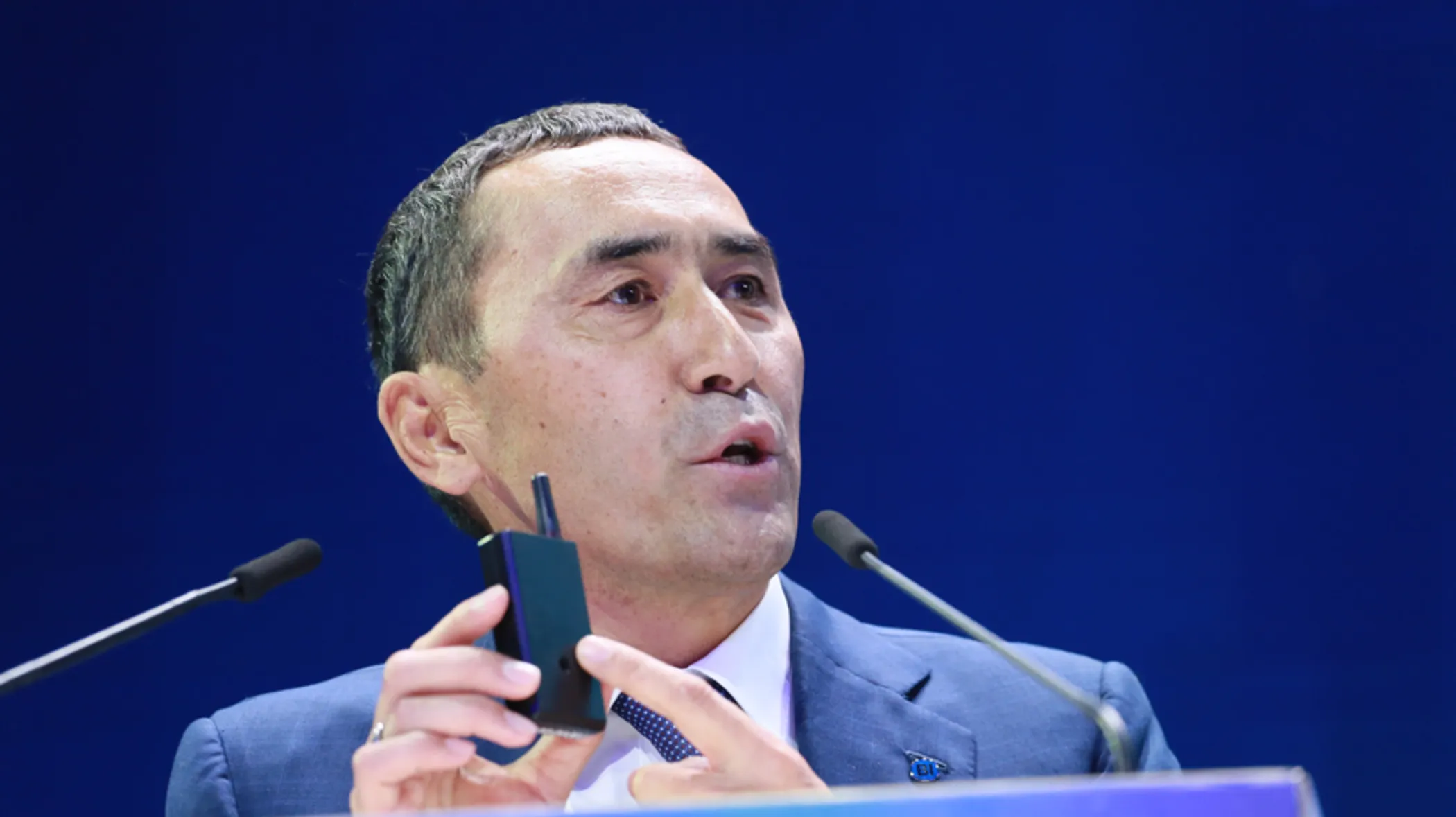Leading Kazakh fintech companies presented e-Gov and fintech products on the first day of the Digital Bridge 2022 forum in Astana, QazMonitor reports.
The Minister of Digital Development, Innovations and Aerospace Industry Bagdat Mussin opened the panel session titled “Development of GovTech in Kazakhstan: collaboration with business”, where he welcomed the participants and highlighted the importance of digitization of government services in modern society.

During his speech, Mussin proposed the idea of replacing electronic digital signature (EDS) in e-government services with the QR-code system for verifying documents online.
"Even I have to admit that everyone is sick and tired of the EDS,” Mussin remarked on the overly complicated process.
“You have to go somewhere to pick it up, then install an additional application, and so on and so forth. Personally, as the Minister of Digital Development, I am definitely not happy with this”.
According to the minister, using a QR code has gone into wider use in the country. It has already become a preferred method of sharing contact information in advertisements as well as payment in many stores and on public transport.
“When you open QR-signature in eGov Mobile you just need to point at any QR-code for the signing to happen," Mussin concluded.

Chair of the Management Board of Halyk Bank Umut Shayakhmetova spoke on how government flexibility plays a major role in banking ecosystems with the help of e-Gov services. She cited the example of Baltic states and Singapore, where over 90% of government services are provided online, emphasizing Kazakhstan’s position as one of the leaders in the field.
“In the Halyk ecosystem, e-Gov services play a pivotal role. We pay great attention to its development and provide 17 government services regarding legal regulations and 18 [official] digital documents. What used to be a three-day process to register a pledge for real estate only takes three minutes now”.

The presentation by CEO of Freedom Holding Corp Timur Turlov was interrupted by a power outage, though the entrepreneur continued his speech on how Freedom bank became a full-fledged platform for creating unique digital products.
He talked about the implementation of the bank's digital mortgage and car lending programs, which allow customers to make arrangements in just one day. Turlov also highlighted the bank’s effort to promote investment literacy among the public by introducing investment cards linked to brokerage accounts.

Chair of the Board of Directors of BI-Group Aidyn Rakhimbaev presented the audience with the digital ecosystem BIG App, which allows citizens to sign and register participation agreements through their smartphones.
According to the Chair, the app offers the opportunity to register an apartment without relying on notary services. “Eleven thousand apartments have already been registered by us in an online format in just under ten minutes,” Rakhimbayev said.
“At this point, we have built nearly 100 thousand apartments with over 300 thousand people living in them. All applications are submitted to us online. A Kazakh resident can receive almost every one of our services through their smartphone.”

2020 and 2021 were difficult years for Otbasy Bank. Lyazzat Ibragimova, Otbasy’s board chair, shared that the existing digital infrastructure was what ultimately saved the bank.
In the span of those two years, Otbasy Bank conducted over 1,412 million biometric identifications, which means that the customers did not have to be physically present at the bank to receive banking services. The bank received 764,000 registration requests last year and 648,000 customer requests in the first eight months of 2022.
For this reason, Otbasy bank has opened a digital marketplace called Baspana Market that provides offers on the primary and secondary real estate markets.

The panel was concluded with the presentation by the head and co-founder of Kaspi.kz, Mikhail Lomtadze, who shared the results of implementing e-gov services in the Kaspi app.
Launched two years ago, the goal of the implementation is to help Kazakh residents in obtaining government services. The app has expanded to include services for taxes, digital documentation, vehicle registration, and many more.
According to the Lomtadze, the app continues to grow in popularity with over 12 million Kazakh residents using it monthly and around seven million on daily basis. He noted: “There’s an indicator called daily visits to monthly visits. According to that, we are at about 60% and still growing. Kaspi.kz is the second in the world by that indicator”.










